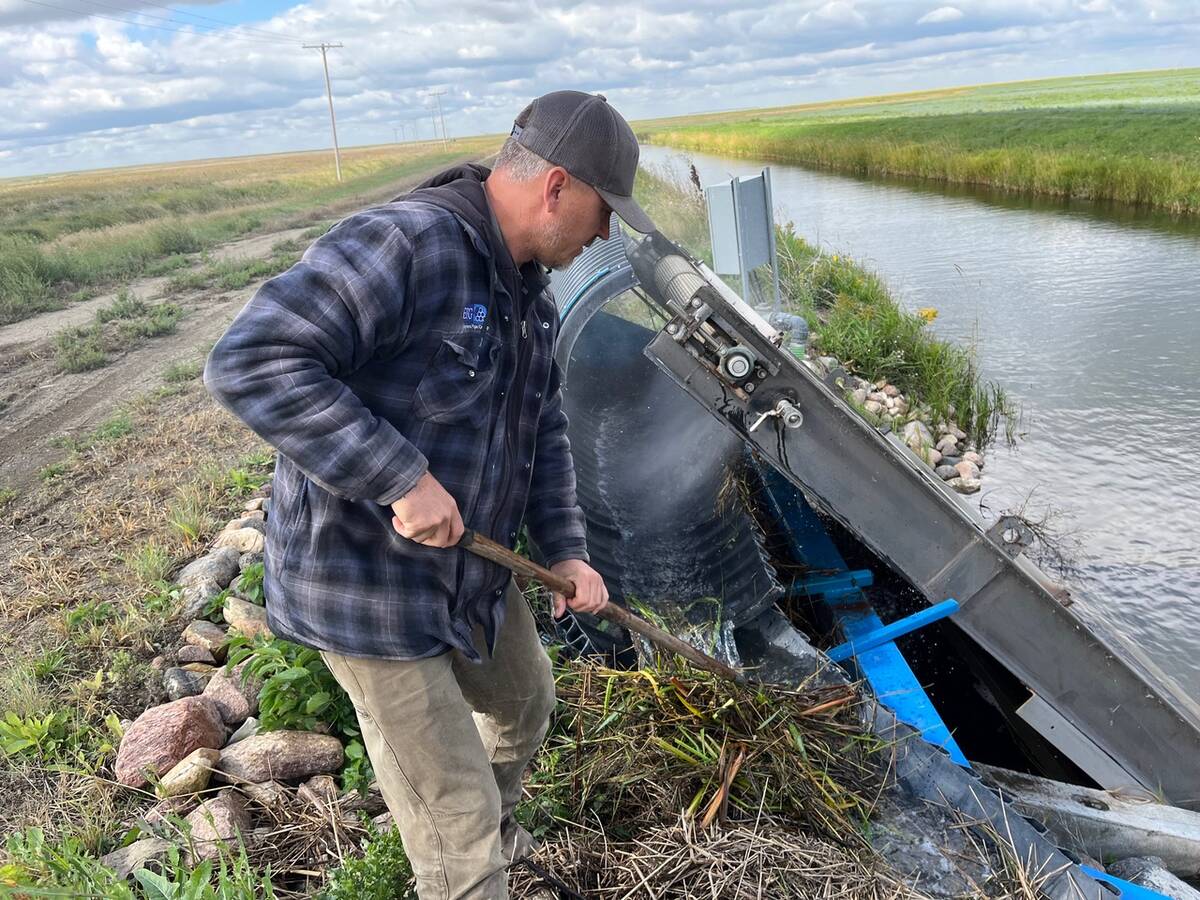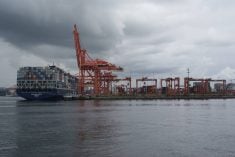UPDATED: November 12, 2024 – 1250 CST – includes comments from Pulse Canada and the Canadian Specials Crops Trade Association.
OTTAWA, (Reuters) – Canadian Labour Minister Steven MacKinnon said on Tuesday he had directed the country’s labor relations board to order an end to disputes at the ports of Vancouver and Montreal, citing the economic damage inflicted.
The move marked the second time in a few months that the Liberal government has stepped in to end a dispute. In August it ordered an end to work stoppages at the country’s two largest railway companies.
Read Also

Saskatchewan farmer uses tile drainage to manage water
The integration of both irrigation and tile drainage results in higher yields, water efficiency, improved soils and less nutrient runoff, says one producer.
The Montreal Longshoremen’s Union rejected a final offer made for a new labor contract, leading to a lockout being declared. Exports of canola oil and forest products from West Coast ports, including Vancouver, have halted.
“As the economic losses threaten the country and begin to mount, it is up to the government to ensure that … we can get on with the economic life of this country and avoid layoffs and other carnage,” MacKinnon told a news conference.
MacKinnon has also asked the labor relations board to impose binding arbitration on employers and union.
The news was welcomed by Pulse Canada and the Canadian Specials Crops Trade Association, which issued a joint statement on behalf of chair Terry Youzwa and president Murad Al-Katib.
“We appreciate that the federal government heard the concerns of industry and acted to prevent further economic harm. These stoppages were simply the latest in a disturbing pattern of supply chain disruptions that habitually threaten the livelihoods of those working in Canada’s pulse and special crops sector, the growth of the Canadian economy, and the pocketbooks of Canadian consumers,” they said in a statement.
“It is time for a long-term solution to ensure the labour issues can be addressed in an appropriate, timely manner, without impacting the thousands of businesses and millions of families who rely on a functioning supply chain to make a living.”

















